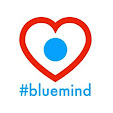
Hi Everyone!
In class we talk about a number of variables concerning Wellness & Stress - nutrition, exercise, blood pressure etc. In Scientific American Mind Jonah Lehrer interviews Dr. P. Murali Doraiswamy in "Can Alzheimer's Be Cured?" and interestingly enough these variables are precisely the ones we all need to keep in check to keep our brains healthy prevent Alzheimers & slow its progression.




